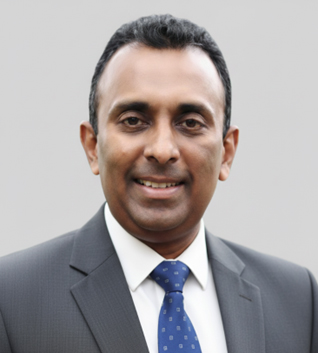
Prof. Chalinda K. Beneragama
Department of Crop Science, Faculty of Agriculture
University of Peradeniya, Sri Lanka
Professor Chalinda K. Beneragama is a distinguished academic leader and specialist in horticulture, serving as a Professor in the Department of Crop Science at the Faculty of Agriculture, University of Peradeniya, Sri Lanka. With over 25 years of experience, his teaching and research focus on Commercial Horticulture, Floriculture, and Landscape Gardening, impacting both undergraduate and postgraduate education. He is widely recognized as an exceptional teacher, mentor, and advisor, having guided more than 100 graduate and postgraduate research students.
Prof. Beneragama holds a PhD in Photobiology from Iwate University, Japan, an MSc in Turfgrass Science from Obihiro University, Japan, an MPhil in Floriculture and Landscape Architecture from the University of Peradeniya, and a BSc in Agriculture from the same institution. His commitment to innovative education is further demonstrated by his credentials in online teaching and as a Certified Trainer in Artificial Intelligence for the Asia-Pacific region.
Beyond the classroom, he has held significant leadership roles, including Director of the Academic Affairs Division, Head of the Department of Crop Science, Director of the Staff Development Centre, and Director of the Agriculture Education Unit at the University of Peradeniya. He also chaired the Workgroup on Postharvest in Emerging Countries under the International Society for Horticultural Sciences (ISHS) and serves on Sri Lanka’s National Floriculture Task Force. Currently, he chairs the Working group on Agri-Technology in the Lanka Education and Research Network.
A prolific researcher, Prof. Beneragama has authored over 70 peer-reviewed publications, including journal articles, book chapters, and conference papers. He has secured substantial research and development grants exceeding USD 800,000 from international organizations such as the World Bank, USAID, and the Kingdom of the Netherlands. His editorial leadership includes roles as Editor-in-Chief of Tropical Agricultural Research and Acta Horticulturae, and he serves on the editorial boards of several international journals.
Widely sought as a trainer and consultant, he has designed and delivered over 1500 capacity-building programs in teaching methodologies, curriculum development, soft skills, and AI in education for academic staff and students across 15 state and 9 non-state universities in Sri Lanka, as well as institutions in the USA, Australia, Japan, India, Bangladesh, and Oman. He has also coordinated multiple international study abroad programs, fostering global academic exchange. He is the pioneer in introducing Collaborative Online International Learning (COIL) programs to Sri Lanka.
Honored with the Presidential Award for Scientific Publications and several best paper awards, Prof. Beneragama is a dynamic educator, researcher, and institution-builder whose work continues to advance agricultural science, enhance higher education, and contribute to sustainable development both nationally and internationally.